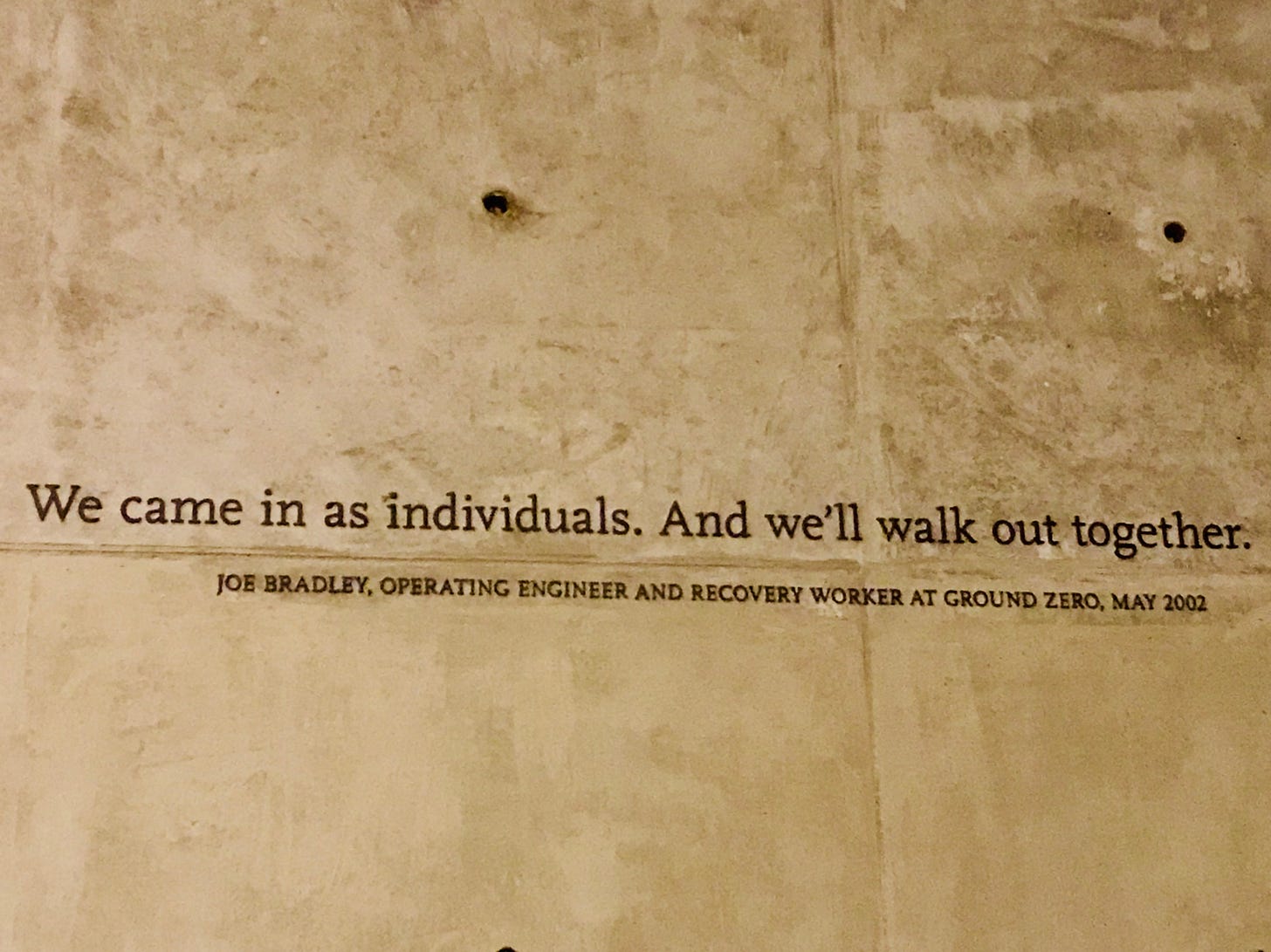On 9/11, After Charlie Kirk’s Assassination, America Faces Another Test
Political violence is spiraling. Empathy is slipping away. And how we respond now will decide who we are.
September 11th is always a heavy day. For those of us who lived through it in government service, in New York, in D.C., or anywhere across the country, it carries the memory of horror, grief, and resolve. It is a day when we are reminded of both the fragility of life and the strength of a nation that promised itself never to forget.
This year, that solemn weight is compounded by fresh violence at home. Yesterday, Charlie Kirk was assassinated. I’m not excusing the hatred and division he himself espoused, but violence is never the answer. Taking a life to silence a voice only deepens the wounds of a nation already fractured. At the very same time, another school shooting in Colorado, shattered yet another community. And just this June, two Democratic lawmakers in Minnesota were gunned down at their homes, the suspect had a “hit list” of 45 elected officials, all Democrats.
The violence we see in the headlines is mirrored in the threats and intimidation that so many Americans face behind the scenes.
I know this personally. I came up through conservative circles, and today I receive death threats simply for speaking out against Trump and extremism in the GOP. But I am not unique. Countless Americans live under threats for who they are, what they believe, or the courage to speak their truth. That loss of safety is what happens when empathy dies. And today I know that threat has only increased. There will be those who may seek to “avenge” Charlie Kirk’s death, as Jesse Watters on Fox New last night called for…and who knows how that will be manifested.
Charlie Kirk’s assassination is not an isolated act. Over the past decade, we’ve lived through Charleston’s church massacre, Charlottesville’s car attack, the El Paso Walmart and Buffalo grocery store shootings, the Tree of Life synagogue, Club Q, the assault on Paul Pelosi, the Whitmer kidnapping plot, and the insurrection of January 6th. Different communities, different ideologies, different targets, but the same thread of political violence and hateful ideology running through all of them. I worked the aftermath of many of these horrific events during the first Trump administration, from the Tree of Life shooting to Cesar Sayoc, who mailed bombs to prominent Democrats and media figures, to El Paso, which tore through my own family. Each one was its own crisis. Each one should have been a turning point. Instead, we hardened. We normalized. We moved on too fast.
That normalization is tied to something even darker: dehumanization. Our discourse has shifted from disagreeing with people to denying their humanity. When political opponents are branded as enemies, when communities are painted as threats, when children are dismissed as collateral damage, violence becomes easier to justify.
We saw it in real time yesterday. Instead of uniting in grief after Kirk’s killing, too many voices rushed online to assign blame, to mock, to score partisan points. That instinct, to win rather than to grieve, is part of what’s broken in us. And even in Congress, where leaders should have been setting the tone, a solemn moment dissolved into angry shouting. If even our lawmakers cannot pause division in the wake of assassination, what hope is there for the rest of the country?
The White House’s words last night were just as revealing. Trump framed this moment narrowly, listing only right-wing victims while ignoring the broader crisis. He vowed to go after not just perpetrators, but “organizations that fund and support” them. We know from experience that he is willing to stretch the boundaries of power, to smash through democratic norms in the name of retribution. The question is not whether a response will come, but how far it will go.
This is why empathy matters. Because empathy is what keeps us human in the face of violence. And empathy is what we are losing. Unfortunately, we don’t have a leader sitting in the Oval Office currently who is capable of leading with it, so the responsibility lies with the rest of us.
On September 11th, 2001, Americans promised to stand together in the face of terror. We remembered, for a time, that our differences were nothing compared to what we could lose if we let violence consume us. We are being tested again.
If we allow ourselves to descend further into cruelty, into cheering or excusing violence depending on whether the victim “deserved it,” we are not just losing lives. We are losing our humanity.
Violence is not the answer. And neither is indifference.
If 9/11 taught us anything, it’s that in the face of darkness, empathy and unity are what keep us whole. But memory isn’t enough. We have to choose empathy, in our words, in our politics, in how we treat even those we disagree with. And we have to summon the civic courage to speak out when others cheer violence or excuse hate.
Civic courage is not abstract. It is choosing compassion over cruelty. Humanity over division. It is the everyday act of refusing to be silent when silence only fuels the fire.
Heartbroken for our country.
Olivia




What a heartfelt post. I wish major news outlets could print this in its entirety on their opinion page
The country needs your voice and expertise. Thank you.